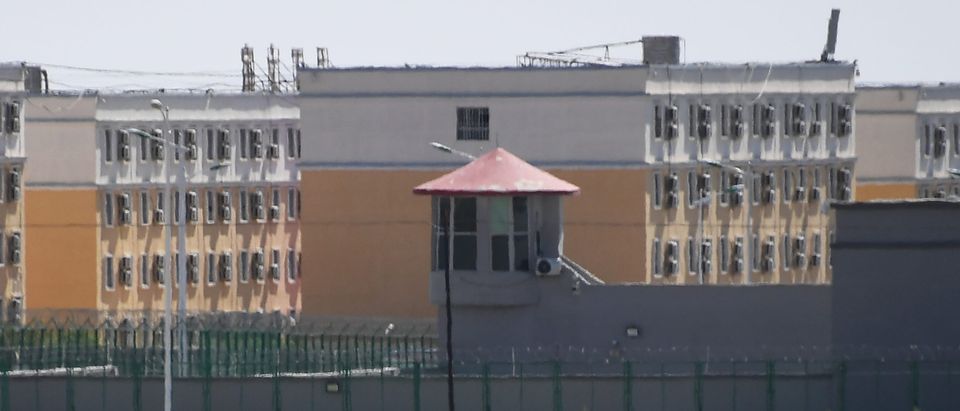Both chambers of Congress will vote on an updated version of the Uyghur Forced Labor Prevention Act following a week of negotiations between Democratic Massachusetts Rep. Jim McGovern and Republican Florida Sen. Marco Rubio.
The latest version will receive a vote Tuesday, and then be sent to the Senate for “swift action,” Speaker of the House Nancy Pelosi said in a statement. It creates a “rebuttable presumption” that goods produced in Xinjiang or by certain listed Chinese business entities are produced by the forced labor of Uyghurs or other ethnic minorities. A previous version of the House bill did not address reports that Chinese companies and the government are transporting Uyghurs and members of other minority groups outside of Xinjiang to participate in forced labor. (RELATED: Here Are The Companies Linked To Forced Uighur Slave Labor)
Companies may continue to import products from Xinjiang if they provide “clear and convincing evidence” to the Commissioner of Customs and Border Protection that their supply chains do not include forced labor.
Read the bill here:
MCGOVE_031_xml by Michael Ginsberg on Scribd
The consensus version eliminates a reporting requirement to the Securities and Exchange Commission, which had previously been included in the House version. The consensus version also gives companies 180 days to comply with the new import ban, whereas the Senate version offered 300, and the previous House version offered 120.
The Senate passed a version of the Uyghur Forced Labor Prevention Act by voice vote in July, but when the House did not immediately take up the legislation, Rubio attempted to insert it as an amendment to the National Defense Authorization Act. The House passed McGovern’s version of the bill on Dec. 8 in a 428-1 vote.
The five month wait, along with the opposition of major companies like Nike and Coca-Cola, led some observers to suspect that the Biden administration was attempting to kill or water down the bill. The Washington Post’s Josh Rogin reported that Deputy Secretary of State Wendy Sherman encouraged Democratic Oregon Sen. Jeff Merkley to shrink the scope of the legislation, while Rubio and Minority Leader Kevin McCarthy accused Pelosi of attempting to kill the legislation.
The House passed 30+ bills yesterday. All but ONE were sent to the Senate for a vote. It’s the Uyghur Forced Labor Prevention Act—which cracks down on goods made with Chinese slave labor.
Why is Speaker Pelosi dragging her feet? What does the Chinese Communist Party have on her?
— Kevin McCarthy (@GOPLeader) December 10, 2021
White House press secretary Jen Psaki denied the allegations against Sherman, saying that the Biden administration is “not lobbying in any way against the passage of this bill.” She characterized Sherman’s conversation with Merkley as “technical assistance.” Psaki confirmed Tuesday that President Joe Biden will sign the bill once the Senate passes it.
A House Democratic staffer with knowledge of the situation denied reports that the Biden administration encouraged House Democrats to slow-walk the legislation. The staffer also noted that the House initially passed the bill in 2020, but that senators could not come to an agreement on the legislation before the end of the 116th Congress.
Both the Trump and Biden administrations have determined that China is committing genocide against the Uyghurs. In addition to forced labor, China has subjected Uyghurs to re-education camps, forced sterilization, and mass rape.
“This compromise bill is a good episode of bipartisan cooperation—one that all parties involved will hopefully seek to replicate in other areas. It’s also notable that Congress appears poised to take this action well in advance of the Beijing Winter Olympics, where the Chinese Communist Party will almost certainly push propaganda that whitewashes the ongoing genocide in Xinjiang,” Michael Sobolik, a fellow in Indo-Pacific Studies at the American Foreign Policy Council who has been tracking the legislation, told the Daily Caller.












